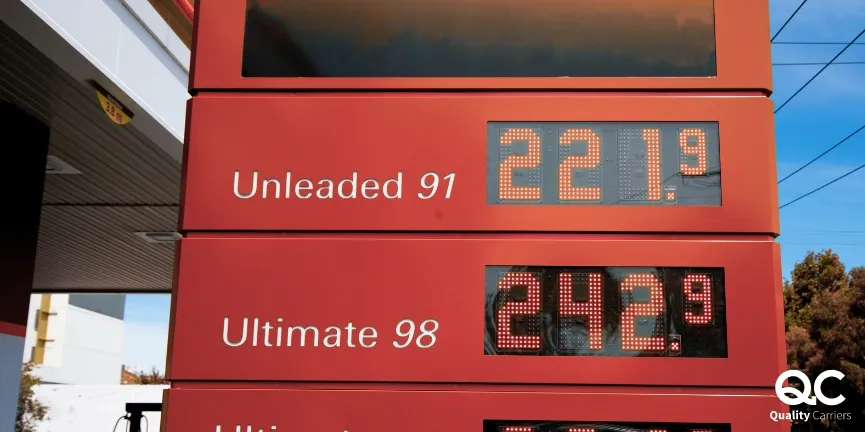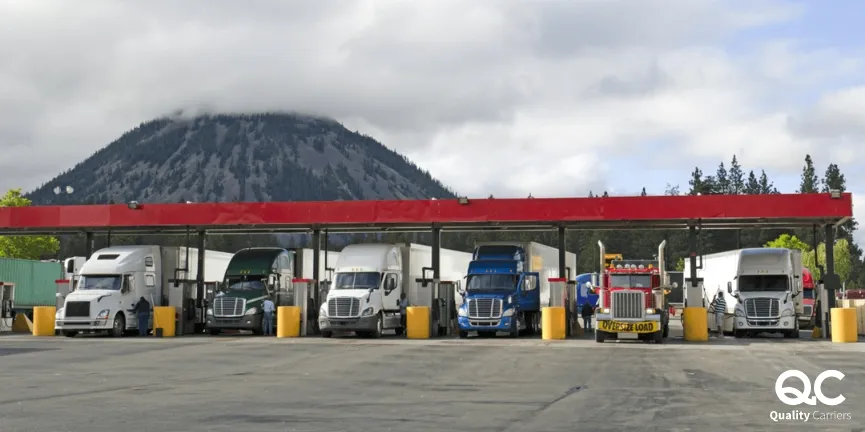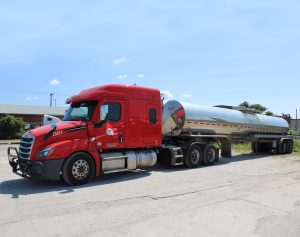Fuel is one of the most significant and fluctuating expenses in the trucking industry. To manage the volatility of fuel prices, trucking companies often implement a fuel surcharge—a common practice that helps offset the changing fuel cost. But what exactly is a fuel surcharge, and how does it work? In this blog, we’ll explore the concept of fuel surcharges, their calculation, and their purpose within the trucking industry.
What Is a Fuel Surcharge?
Fuel surcharges are fees added to the base freight rate that trucking companies charge their customers. This surcharge is designed to account for the fluctuating costs of fuel, which can vary significantly due to market conditions, geopolitical factors, and changes in supply and demand. By implementing a fuel surcharge, trucking companies can adjust their pricing to reflect current fuel prices, ensuring they are not adversely affected by sudden spikes in fuel costs.
How Is a Fuel Surcharge Calculated?
The fuel surcharge calculation is based on several variables that help determine how much extra should be charged to cover the rising or falling fuel cost. While the exact formula may vary between companies, the basic principles remain consistent.
Here’s a simple version of how a fuel surcharge is calculated:
The original fuel price (−) The updated fuel price (=) Difference in fuel cost.
The difference in fuel cost (÷) The miles per gallon (=) cost per mile.
The cost per mile (×) The distance traveled (=) The surcharge.
Three Variables To Consider

1. The Base Price of Fuel
The base fuel price is a predetermined benchmark used to calculate the surcharge. This is typically the cost of fuel at a specific time when the surcharge was first implemented or when a contract was signed. The base price is a reference point for determining how much the fuel price has increased or decreased.
2. The Truck’s Fuel Economy
The truck’s fuel economy—measured in miles per gallon (MPG)—is another crucial factor in calculating the fuel surcharge. This variable indicates how efficiently a truck uses fuel, directly impacting the total fuel cost for a given distance. Trucks with better fuel economy will have lower fuel costs and, consequently, a lower surcharge.

3. The Fuel Price Change
The change in fuel price is the difference between the current and base prices. As fuel prices rise above the base price, the surcharge increases to cover the additional cost. Conversely, if fuel prices fall below the base price, the surcharge may decrease or be eliminated.
What Is the Purpose of a Fuel Surcharge?
The primary purpose of a fuel surcharge is to protect trucking companies from the financial impact of fluctuating fuel prices. Since fuel is a significant operational expense, sudden increases in fuel costs can severely impact profitability. By adjusting the surcharge based on current fuel prices, trucking companies can maintain stable rates and avoid the need to renegotiate contracts or increase base freight rates every time fuel prices change.
For shippers, the fuel surcharge provides transparency and predictability. It allows them to understand how fuel costs affect shipping rates and plan their budgets accordingly. Additionally, it helps prevent sudden rate hikes by making fuel costs a separate, adjustable component of the overall shipping cost.
How Does the Fuel Surcharge Work?
A fuel surcharge allows trucking companies to adjust their pricing based on fluctuations in fuel costs. When the fuel price rises above a predetermined base level, the surcharge is applied to cover the additional expense. This surcharge is calculated using a formula that considers the difference between the current fuel price, the base price, and the truck’s fuel economy. For example, if fuel prices increase, the surcharge ensures the carrier is compensated for the extra fuel costs incurred during transportation. This mechanism helps trucking companies maintain consistent pricing without constantly renegotiating contracts, providing financial stability in volatile fuel markets.
Conclusion
Fuel surcharges are an essential mechanism in the trucking industry, allowing companies to manage the unpredictable nature of fuel prices. By understanding how fuel surcharges are calculated and applied, trucking companies and their customers can better navigate the complexities of fuel costs, ensuring that shipping rates remain fair and transparent. This practice helps protect the profitability of trucking companies and provides shippers with a clearer picture of how fuel costs influence their overall logistics expenses.
FAQs
Trucking companies use a fuel surcharge to protect themselves from volatile fuel prices. This allows them to maintain stable pricing while ensuring they can cover the cost of fuel, which is a significant part of their operating expenses.
National fuel surcharge averages are usually updated weekly. This regular update allows trucking companies to adjust their surcharges according to the most recent changes in fuel prices, ensuring accurate and timely pricing adjustments.
No specific federal laws mandate how fuel surcharges must be calculated or applied. However, the practice is widely accepted within the industry, and individual contracts may outline specific terms for fuel surcharges. Both carriers and shippers must agree on the terms and conditions regarding fuel surcharges.




